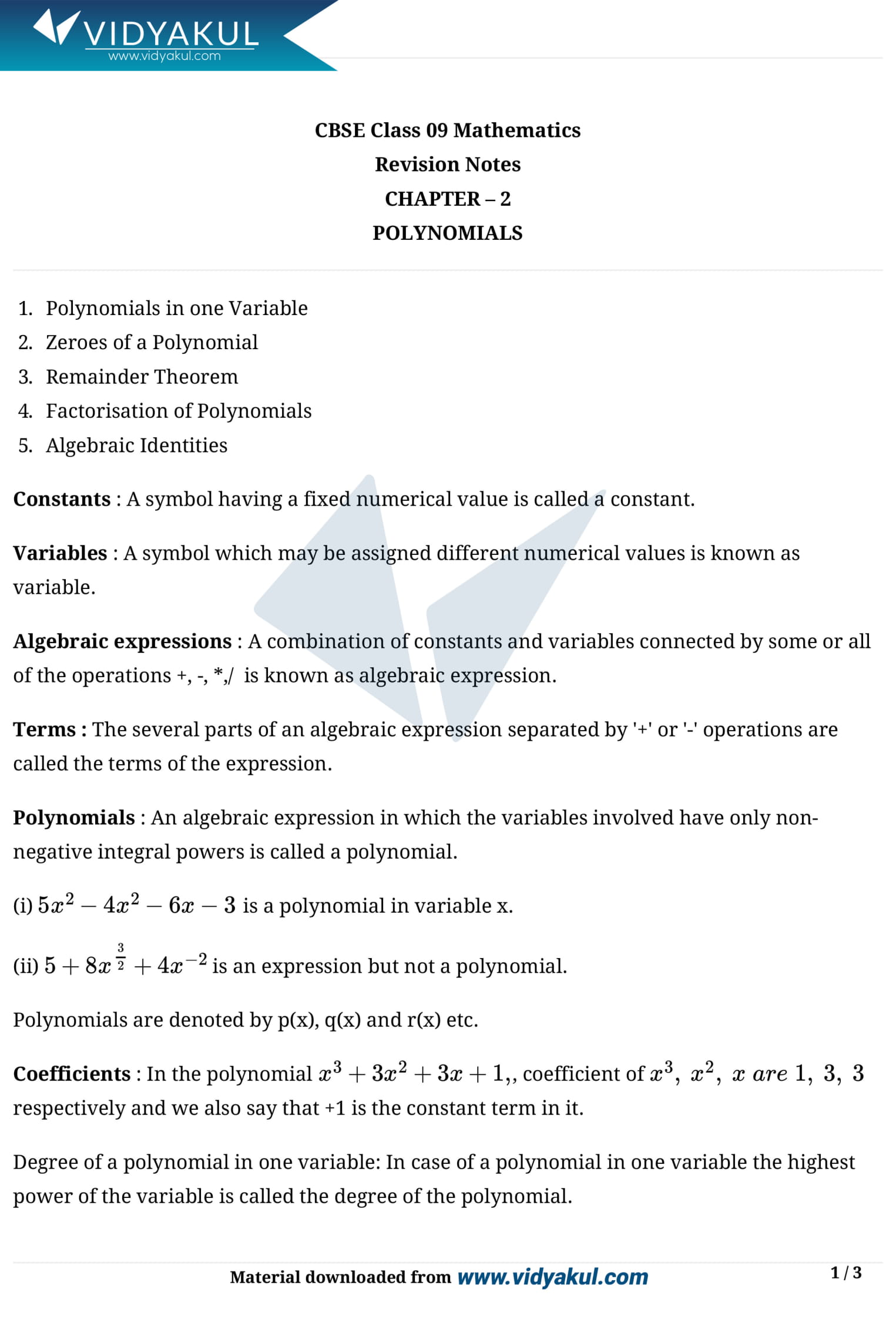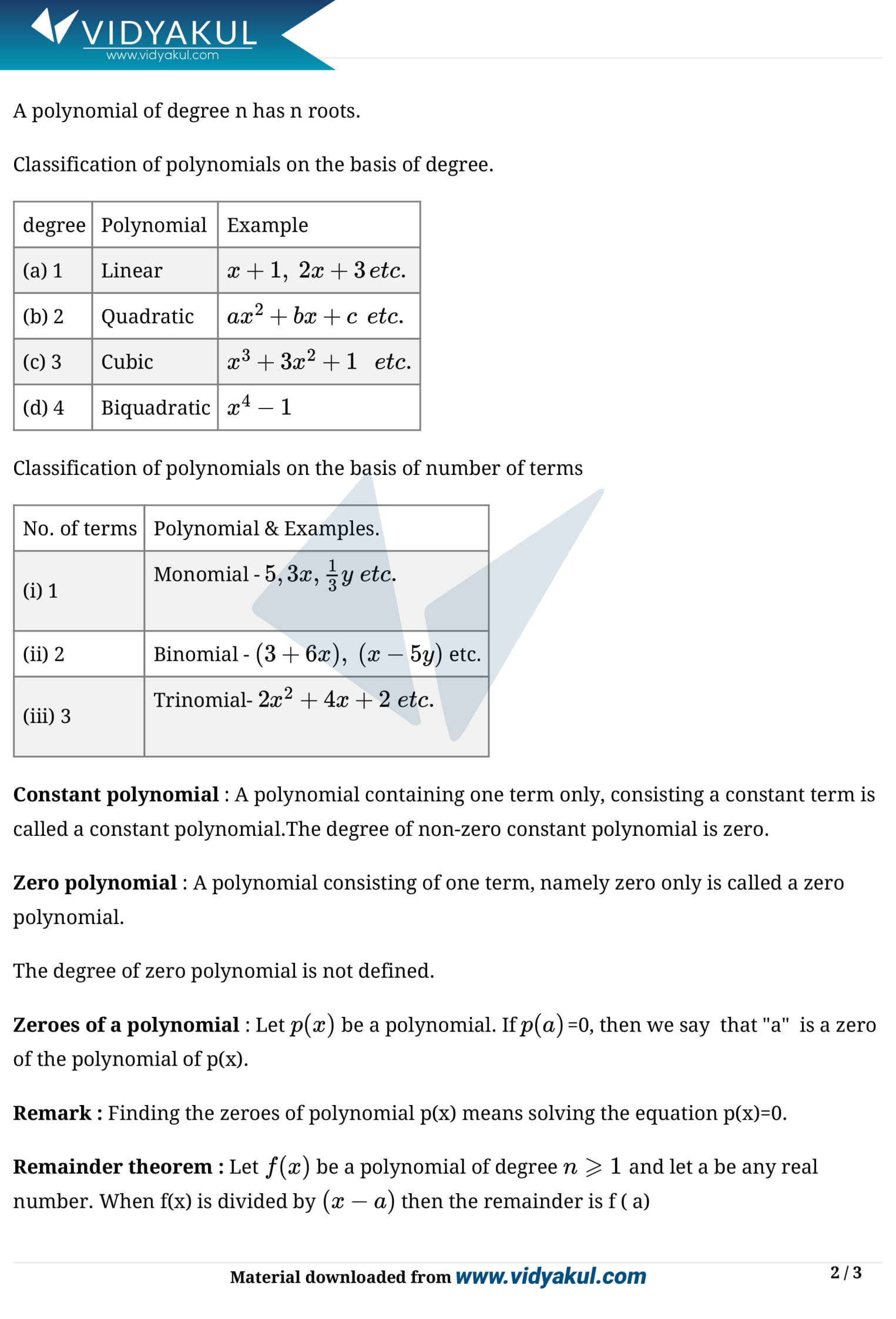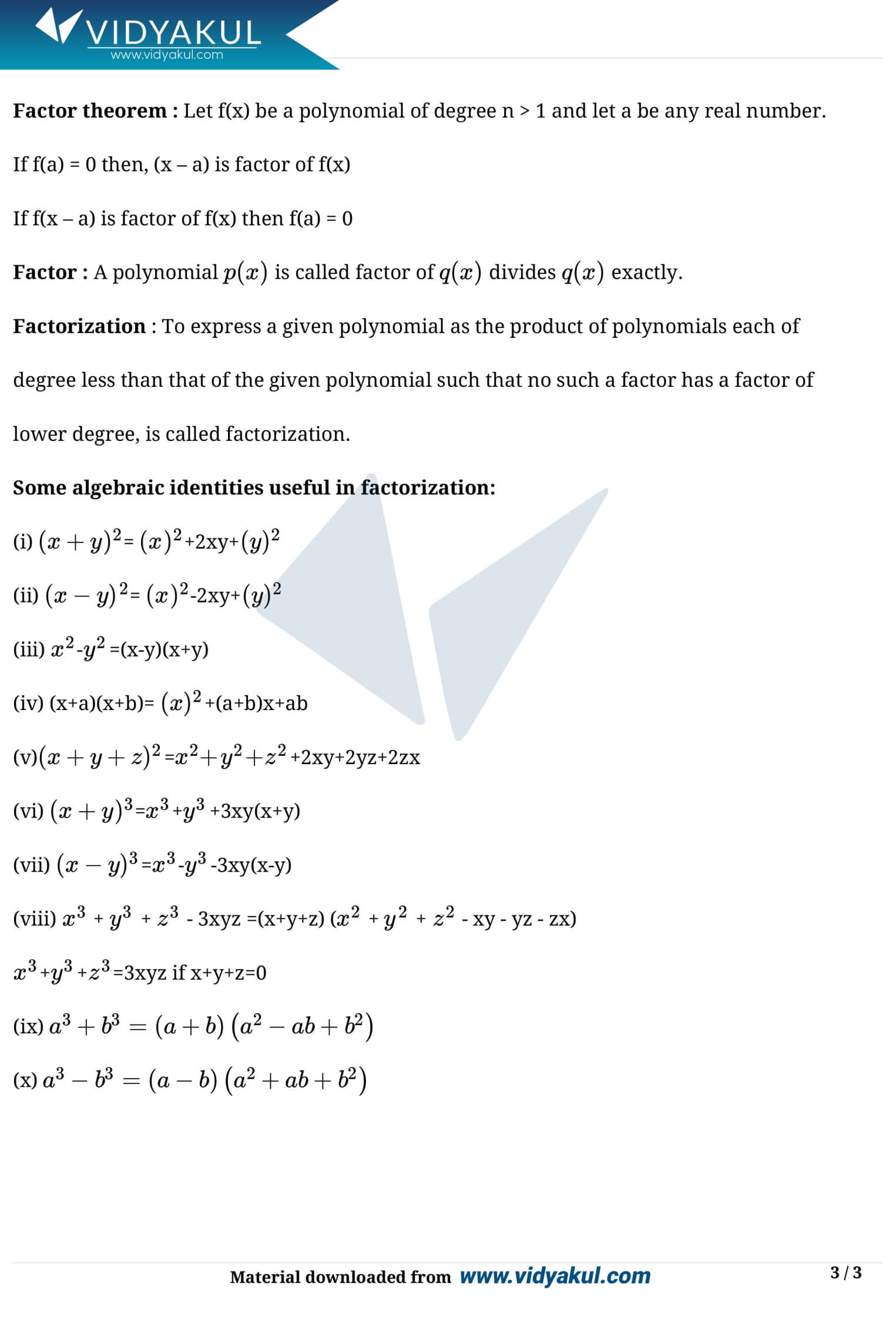Polynomials Class 9 Notes

Chapter 2 Polynomials
Polynomial comes from the word "poly" meaning "many" and "nominal" meaning "term". In
mathematics, polynomials are made up of variables and coefficients, also called indefinite variables. Coefficients include subtraction, addition, non-negative integer exponents of variables, and multiplication operations. In mathematics, both algebraic expressions and polynomials are composed of variables and constants, including arithmetic operations. The only difference between them is that algebraic expressions involve the powers of irrational numbers.
A detailed explanation of class 9 polynomials is presented here along with some important questions to help students understand the concept easily. Vidyakul provides notes designed by subject matter experts to help students prepare for the whiteboard exam. Step-by-step explanations of these NCERT maths notes help students prepare for the exam with ease. These notes are well structured to help students gain information and build a conceptual framework before moving on to more complex topics. Students can quickly learn new concepts and solve motor problems using NCERT notes powered by Vidyakul. Scroll down to learn more.
MATHEMATICS CLASS 9th NOTES CH-2
Points to Remember
Below we have provided some of the important points to remember for NCERT notes for Class 9 Maths Chapter 2 to ace your exams:
Natural Numbers: These are the counting numbers (1, 2, 3,1, 2, 3, etc.).
Whole Numbers: The set of numbers that includes all natural numbers and the number zero are called whole numbers. Whole numbers are also called Non-Negative Integers.
Prime Numbers: A natural number larger than 11 is a prime number if it does not have other divisors except for itself and 11. (The lowest prime number is 22. 22 is also the only even prime number. The lowest odd prime number is 33.)
Composite Numbers: It is a natural number that has at least one divisor different from unity and itself.
Even Numbers: An even number is an integer that can be divided by two and remain an integer or has no remainder.
Odd Numbers: An integer that is not an even number is an odd number.
Divisibility Tests:
(i) Divisibility by 22 or 55: A number is divisible by 22 or 55 if the last digit is divisible by 22 or 55.
(ii) Divisibility by 33 (or 99): All such numbers, the sum of whose digits are divisible by 33 (or 99), are divisible by 33 (or 99).
(iii) Divisibility by 44: A number is divisible by 44 if the last 22 digits are divisible by 44.
(iv) Divisibility by 66: A number is divisible by 66 if it is simultaneously divisible by 22 and 33.
(v) Divisibility by 88: A number is divisible by 88 if the last 33 digits of the number are divisible by 88.
Topics and Sub-topics
Vidyakul provides NCERT notes for all subtopics. Students can easily log into the Vidyakul learning platform for full access. These decisions are good enough for students to score well on the NCERT exam. But before we go into details, let's take a look at the exercises in the table below.
mathematics, polynomials are made up of variables and coefficients, also called indefinite variables. Coefficients include subtraction, addition, non-negative integer exponents of variables, and multiplication operations. In mathematics, both algebraic expressions and polynomials are composed of variables and constants, including arithmetic operations. The only difference between them is that algebraic expressions involve the powers of irrational numbers.
Natural Numbers: These are the counting numbers (1, 2, 3,1, 2, 3, etc.).
Whole Numbers: The set of numbers that includes all natural numbers and the number zero are called whole numbers. Whole numbers are also called Non-Negative Integers.
Prime Numbers: A natural number larger than 11 is a prime number if it does not have other divisors except for itself and 11. (The lowest prime number is 22. 22 is also the only even prime number. The lowest odd prime number is 33.)
Composite Numbers: It is a natural number that has at least one divisor different from unity and itself.
Even Numbers: An even number is an integer that can be divided by two and remain an integer or has no remainder.
Odd Numbers: An integer that is not an even number is an odd number.
Divisibility Tests:
(i) Divisibility by 22 or 55: A number is divisible by 22 or 55 if the last digit is divisible by 22 or 55.
(ii) Divisibility by 33 (or 99): All such numbers, the sum of whose digits are divisible by 33 (or 99), are divisible by 33 (or 99).
(iii) Divisibility by 44: A number is divisible by 44 if the last 22 digits are divisible by 44.
(iv) Divisibility by 66: A number is divisible by 66 if it is simultaneously divisible by 22 and 33.
(v) Divisibility by 88: A number is divisible by 88 if the last 33 digits of the number are divisible by 88.
Know more about this in Polynomials Class 9 Notes pdf.
Download this solution for FREE Download this PDF






